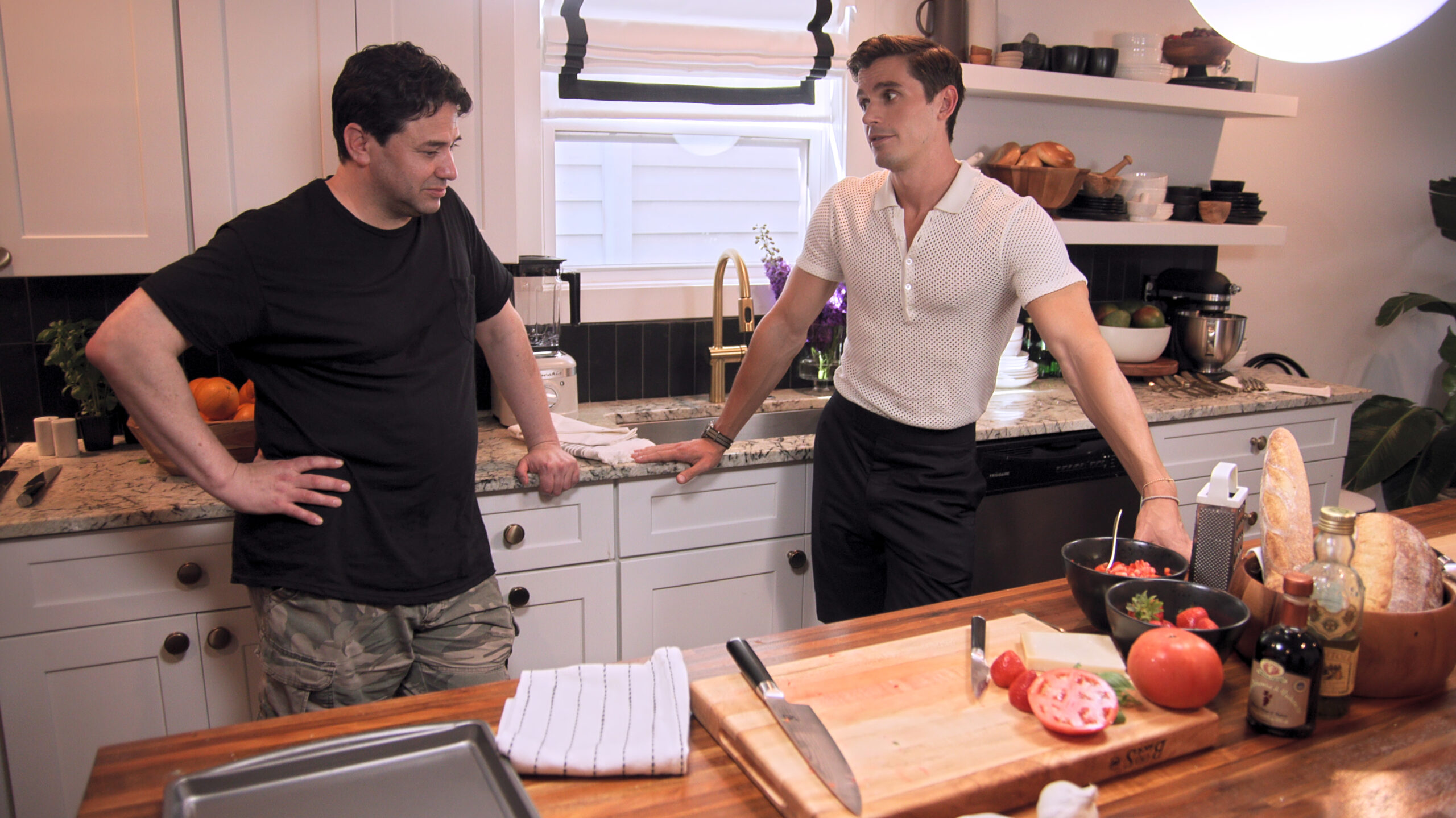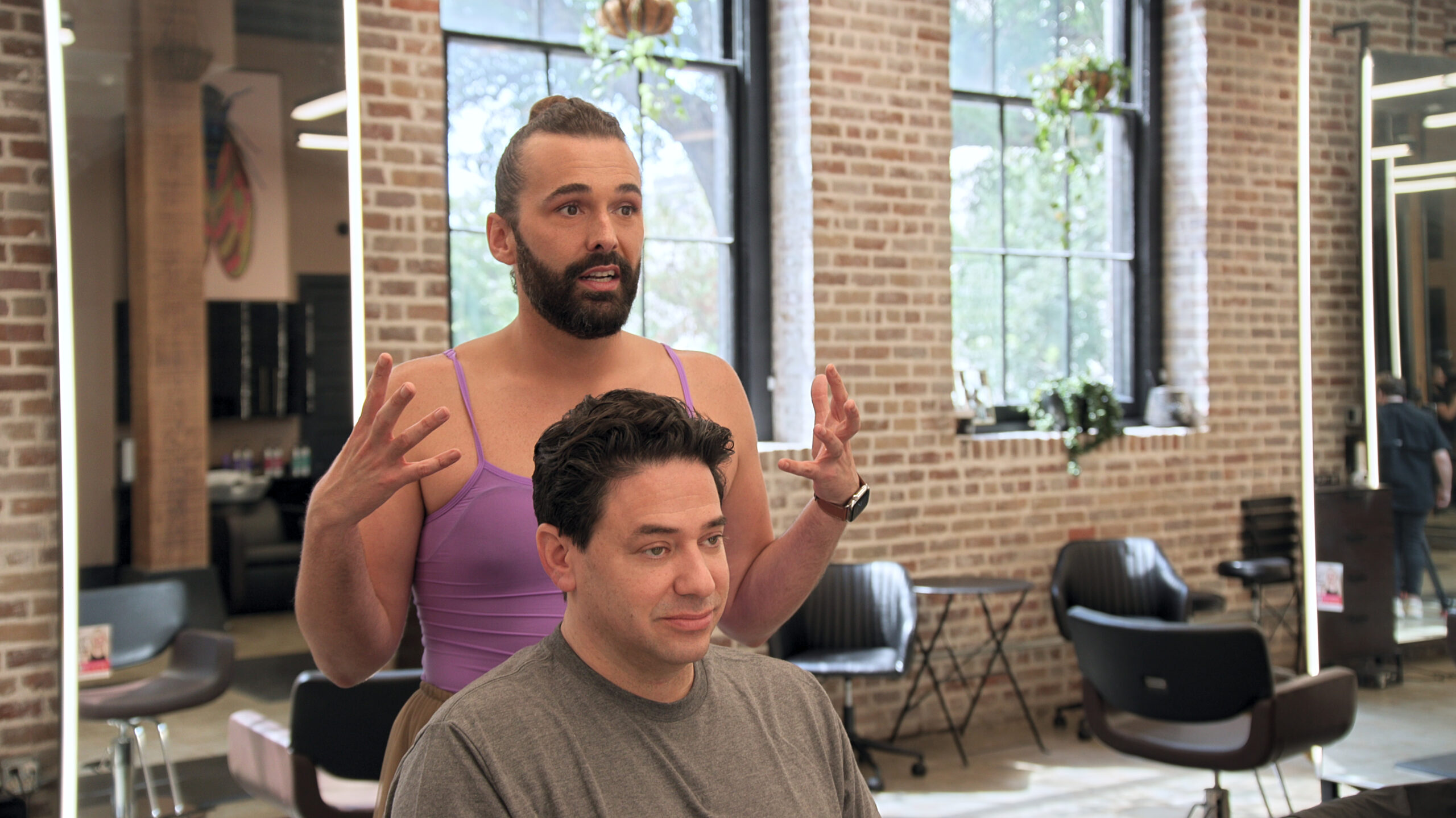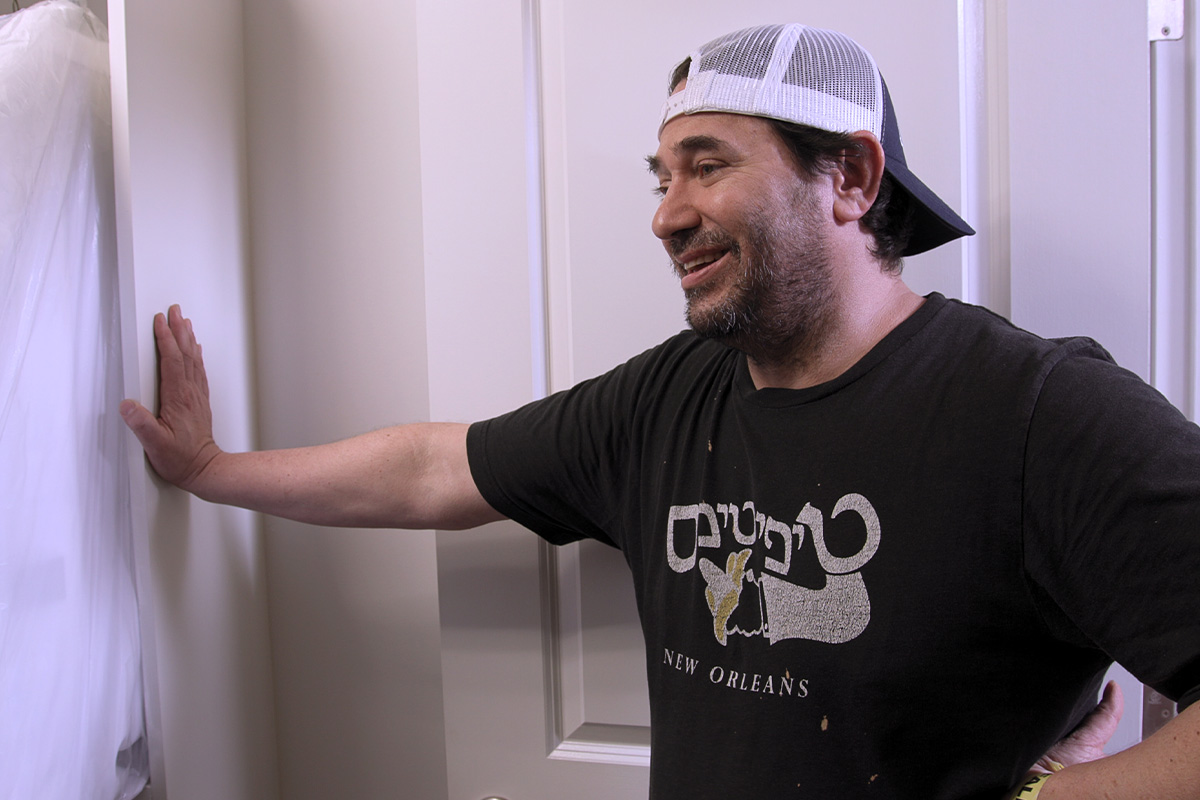The seventh season of “Queer Eye” landed on Netflix this May. With its arrival during Jewish American Heritage Month came a special gift: Dan Stein the deli man, the first Jewish hero on the show. While Antoni Porowski of the Fab Five calls himself “6% Ashkenazi Jewish” online, it’s refreshing to see Jewish representation in the folks highlighted on their journeys of self-love and improvement. Throughout the years I’ve been an avid fan of “Queer Eye,” I’ve hoped to see the show spotlight an incredible Jewish person. It thrills me to share they delivered.
Dan Stein, of Stein’s Market and Deli in New Orleans, is a local celebrity, loved for incredible food and his prickly, kind personality. When he appeared on the screen wearing a shirt with Hebrew typography and what looked like a shofar, I felt my heart soar with delight and immediate recognition. I was on Dan’s Instagram page before the episode ended, looking for confirmation of his Judaism. What I found with excitement was years of Hanukkah posts with an electric menorah and messages to his “fellow NOLA Jewish People.”

While in the episode, the Fab Five don’t discuss his Judaism, focusing instead on helping him balance work and his relationship with girlfriend Cara, Jewish artifacts infuse the background. 14 seconds into the episode, the audience can spot a mezuzah with Batman on it at the entrance of the deli — honestly one of the most incredible things I’ve ever seen. Since I was a kid, my Jewish parents have had a box of mezuzahs, one for each of my siblings and me; they are perfect swirls of glass that stay in their box as each of us waits to be able to afford a house. But there’s something about a clay mezuzah with a recognizable character that feels so immediately accessible. Welcome, order a bagel — no staff will be antisemitic to you here.
In Dan Stein’s first on-screen appearance, he’s answering the phone with a gruff, monotone “Stein.” Signs with messages like “don’t be a schmuck!”, one-of-a-kind advertising campaigns with logos incorporating the Star of David, boxes of Manischewitz products and row upon row of delicious-looking bagels immediately identified the deli as a Jewish establishment run by a Jew. I’ve never visited New Orleans, but it’s moved much higher on my travel list thanks to Dan Stein and his deli.
Stein is described as a workaholic by customers and friends. He was a former lawyer in Philadelphia and now owns the deli, working 70+ hours a week. When talking about his work on the show, he says, “If I was Samson, the deli is my hair.” He reminded me immediately of my dad, an Israeli lawyer who immigrated to Brooklyn as a kid (and the best cook in our family). I sent him a screenshot of Stein’s shirt to request a translation of the Hebrew; he responded minutes later with a link to Tipitina’s, a music club in New Orleans the shirt was advertising.
The Fab Five surprise Dan at the deli counter. On the phone with a customer, he initially ignores them while handling the phone order and then tells the Five, “You could help me by placing an order.” In typical “Queer Eye” fashion, the group invade his home, teach him how to twerk on a counter (comparing him to Tina Belcher — appropriate, considering folks online have called Dan a real-life Bob Belcher) and chat with him as a group before each one-on-one.
In each segment, a theme emerges. Antoni doesn’t touch the deli and instead teaches Dan how to show up for Cara like he does his business by learning to make her favorite dish. Tan focuses on how Dan can dress up for Cara at events. Karamo creates a game to test how well Dan knows his girlfriend. Bobby cultivates Dan’s home to be more welcoming to Cara.
To the group, Dan explains that he was the “runt of his family” and uses overworking as a response to self-esteem issues. In reply, Karamo says, “People either think you’re amazing or an asshole.” Karamo talks to Dan about how some people see him as abrasive and tough and maybe standoffish, while other people get a sweet loving guy. Karamo doesn’t think both guys are Dan — but that multiplicity of personality is so familiar to many Jewish people. A tough exterior paired with a kind interior sounds like I’m describing half of my Jewish relatives.
Jonathan, who later told People they “did not like him at first, was not a fan,” at the beginning of the episode, wants Dan to lose the gruff guy persona and move forward with hope and love in his heart. But once Jonathan “did his hair and spent some time with him, that really is his defense mechanism, that gruff exterior. And he is such a sweet man… he was amazing in the end.” The vulnerability in the discussion Jonathan and Dan have during the haircut is one of the most refreshing and honest moments in the episode, and when Jonathan asks “Who’s a cutie pie?” and Dan responds, “Me?” my heart broke into a million pieces.

While there’s been some criticism of the episode for focusing too heavily on the needs of Stein’s girlfriend Cara, it feels worth taking a moment to celebrate the show’s first Jewish hero. It may be possible that one of the other individuals honored has Jewish ancestry in their past — I wasn’t able to find another Jew in my research on the past 60 heroes, but I did see lots of Christmas trees on Instagram feeds and no menorahs. Either way, this episode of “Queer Eye” is the first in seven seasons where I heard the word “oy,” saw Hebrew letters and Jewish artifacts, and felt like I immediately recognized someone of a similar heritage.
In the episode, Jonathan talks with Dan about existing outside of the binary to make a point about finding a healthy balance between the deli and his relationship. Similarly, I find myself outside of a binary perspective on this episode: It’s so lovely that “Queer Eye” featured its first Jewish hero, and I’m also looking forward to the next Jewish person featured on the show, hope their Judaism will be discussed openly and more fully incorporated in the future. If “Queer Eye” ever decides to come to Portland, Oregon, I nominate myself as tribute!



